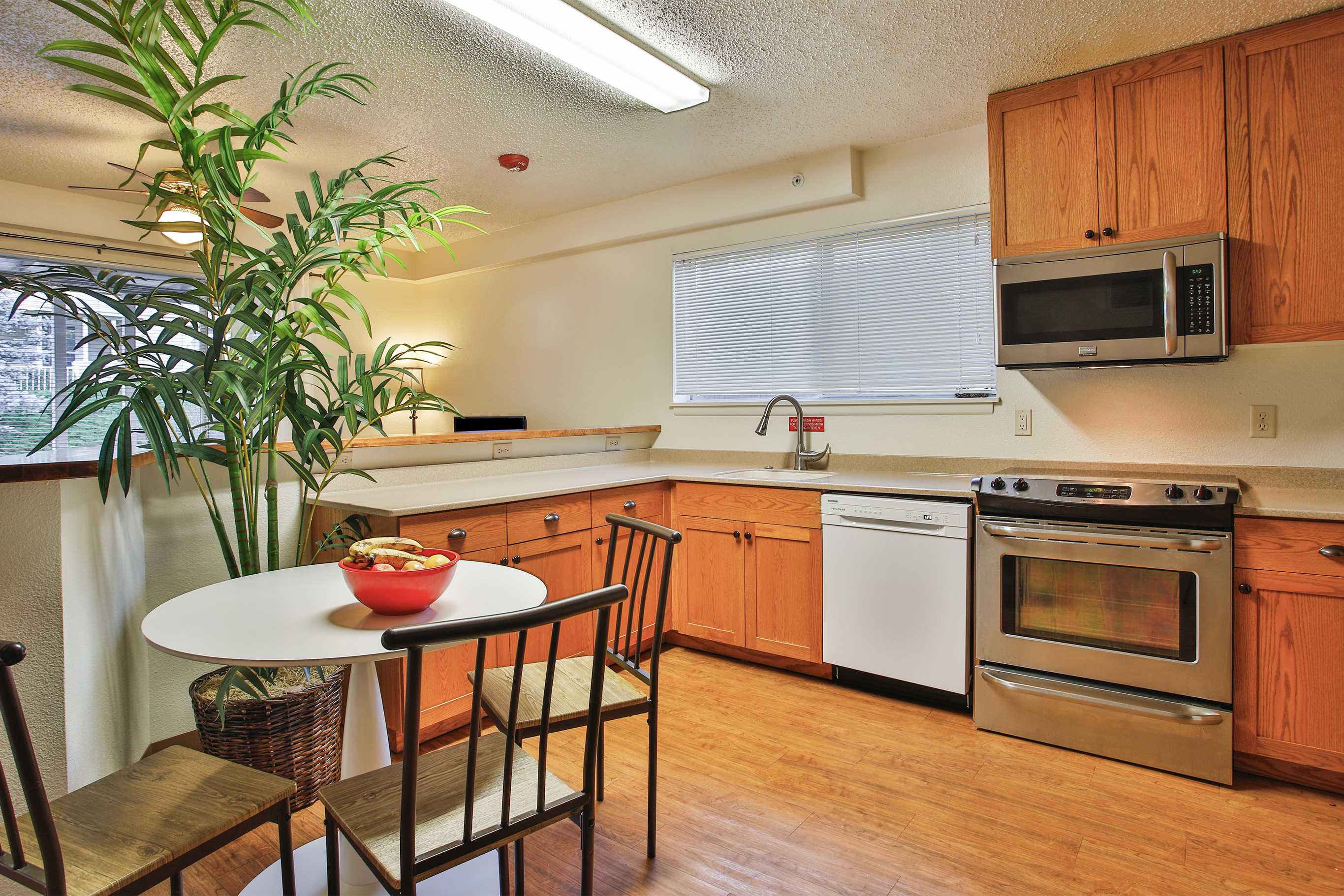

Working To Make Your Recovery Affordable By Accepting Most Insurances
Do not be discouraged if you are not seeing your insurance provider listed on our website. We take many types of insurance! Call Today: (844) 292-5010
-
 In-Network: BCBS
In-Network: BCBS -
 In-Network: Aetna
In-Network: Aetna -
 In-Network: Tricare
In-Network: Tricare -
 In-Network: Cigna
In-Network: Cigna -
 Proudly Caring for Veterans
Proudly Caring for Veterans -
 In-Network: Carelon
In-Network: Carelon -
 In-Network: MultiPlan
In-Network: MultiPlan -
 In-Network: HMC
In-Network: HMC
Residential Inpatient Addiction Program in Prescott, AZ
Addiction Treatment Specialists Providing Expert Counseling & Support

At Decision Point Center, extended residential care is one of the many Arizona addiction treatment programs that we offer for drug and alcohol addiction, and mental health issues.
There are some cases where the treatment team, patients, and their families agree that a longer stay may be necessary for a full recovery. This allows for further stabilization from addictive behaviors. There are also some cases where extended treatment is necessary to ensure that our clients fully recover from any trauma-related experiences and mental health matters.
Decision Point utilizes a holistic approach to treatment based on the belief that all aspects of a client’s life need to be assessed to identify their strengths as well as areas of concern. Treatment begins with a two-week assessment and evaluation period. In addition to an extensive biopsychosocial assessment, clients complete a series of assessments designed to identify issues that need to be addressed to support their individual path to recovery.
Are you or a loved one looking for extended residential treatment in Arizona? Call Decision Point Center today at (844) 292-5010 or contact us online to learn more about our inpatient drug rehab program!
Identifying Trauma and Its Impact on Addiction

In recognition of the relationship between trauma and substance abuse, assessments to identify any trauma a client may have experienced as a child or as an adult, as well as the effects it has had on them, are conducted. They include:
- ACEs to identify traumatic events prior to age 18
- Life Event Checklist identifies traumatic experiences across the lifespan
- PCL-5 assesses for symptoms of PTSD
- Post Traumatic Growth Inventory (completed at intake and discharge)
In recognition that addiction is a family disease, all clients also complete a family genogram to identify patterns of behavior that have influenced each client’s substance use, unhealthy relationship patterns, dysfunctional interpersonal skills, and mental and physical health issues.
A case management assessment is completed to identify both strengths and deficits in each client’s ability to function in more practical aspects of life, e.g., time management, daily living skills. Legal and financial issues are also identified so they can be addressed while a client is in treatment.

Our certified career counselor assesses each client’s employment and education needs/goals. The Holland Self-Directed Search is utilized to help client identify their interests and strengths, and to clarify their career goals. Clients are provided assistance in applying for jobs, and preparing to attend college or training programs. Clients who require more extensive assistance are referred to the State of Arizona’s Department of Economic Security’s Vocational Rehabilitation Program. Our career counselor helps client complete an application and schedules an eligibility interview with a Vocational Rehabilitation Counselor.
Our medical team performs a thorough medical examination, a psychiatric evaluation, and a series of assessments to ensure the medical, nutrition and psychiatric needs of each client are identified and treated effectively. Decision Point has nurses on staff 24 hours a day, seven days a week to ensure the ongoing and emergent medical needs of our clients are met in a timely and effective manner.
Treatment at Decision Point is based on a Therapeutic Community model in which clients learn to hold themselves and others responsible for their behavior, to learn from their interactions with each other and staff, and to become more prosocial, honest, and willing to change. Clients are encouraged to assume a leadership role by assuming personal and social responsibility in the community to help prepare them to be successful in living a sober life when they leave treatment.
Our residential rehab program addresses a wide variety of addictions, including:

Benefits of Our Residential Inpatient Addiction Program
Our residential inpatient addiction program at Decision Point Center offers several significant benefits for individuals seeking recovery from addiction. We are committed to providing a supportive and effective environment for those in need of addiction treatment.
Here are several benefits of our inpatient residential program:
- Comprehensive Treatment: We offer a comprehensive approach to addiction treatment, addressing not only the physical aspects of addiction but also the underlying psychological and emotional factors. Our programs are designed to treat the whole person, focusing on their physical, mental, and emotional well-being.
- 24/7 Care and Support: Our inpatient program provides around-the-clock care and support. This means that individuals in our program receive constant supervision and assistance from our dedicated and trained staff. It ensures a safe and secure environment for those going through the early stages of recovery.
- Structured Environment: Inpatient treatment offers a structured environment that is crucial for individuals trying to break free from addiction. This structure helps clients establish healthy routines, develop new coping strategies, and avoid triggers that may lead to relapse.
Peer Support: Our inpatient program allows individuals to connect with peers who are going through similar challenges. This peer support can be a source of motivation and encouragement as clients share their experiences and learn from one another. - Professional Counseling: We offer individual and group counseling sessions, providing clients with the opportunity to work with experienced therapists who specialize in addiction treatment. These sessions help individuals address the root causes of their addiction and develop healthier coping mechanisms.
- Medical Care: Our inpatient program includes access to medical care to manage withdrawal symptoms and address any physical health issues related to addiction. This medical support ensures that clients are as comfortable as possible during the detox and recovery process.
Holistic Therapies: In addition to traditional therapy, we offer holistic approaches like yoga, meditation, and art therapy. These activities contribute to overall well-being and help clients learn healthy ways to manage stress and emotions. - Family Involvement: We encourage the involvement of families in the recovery process. Our inpatient program often includes family therapy sessions, which can help repair relationships damaged by addiction and provide a strong support system for individuals in recovery.
Relapse Prevention: We equip our clients with the tools and skills needed to prevent relapse. Our goal is to empower them to face the challenges of life after treatment with confidence and resilience. - Aftercare Planning: We don't consider treatment to be complete once an individual leaves our inpatient program. We provide comprehensive aftercare planning to help clients transition back into their regular lives, offering continued support and resources to maintain their sobriety.
Our residential inpatient addiction program in Arizona is designed to give individuals the best possible chance of achieving lasting recovery from addiction. We are dedicated to helping clients regain control of their lives and move forward on a path of health and well-being.

Personalized Treatment Plans for Lasting Recovery
At Decision Point Center, we understand that every individual struggling with drug abuse has unique needs and challenges. That's why our residential inpatient addiction program offers treatment plans tailored to each client's situation. Our team of specialists provides expert counseling and support to address the root causes of addiction, helping clients achieve lasting recovery.
Benefits of our personalized residential inpatient addiction program include:
- Individualized treatment plans
- Comprehensive addiction and trauma therapy
- 24/7 support and supervision
- Access to additional programs and resources
- Opportunity for long-term recovery and sobriety
If you or a loved one are looking for extended residential treatment in Arizona, contact Decision Point Center today to learn more about how our personalized approach can help you on the road to recovery.
Is Inpatient Addiction Treatment Right for Me?
Residential inpatient addiction treatment can be the right choice for individuals under certain circumstances. It's essential to evaluate your specific situation and needs to determine if this level of care is suitable for you.
Here are some instances when residential inpatient addiction treatment may be the right choice:
- Severe Addiction: If you have a long history of substance abuse, a high level of dependence, or have attempted recovery multiple times without success, residential inpatient treatment may provide the intense support and structure necessary for your recovery.
- Unsafe Living Environment: If your current living situation is rife with triggers, negative influences, or is otherwise detrimental to your recovery, the controlled and supportive environment of a residential facility can offer a safer and more conducive setting for healing.
- Co-Occurring Disorders: If you have a dual diagnosis, meaning you are struggling with both substance use disorder and a mental health condition (e.g., depression, anxiety, bipolar disorder), residential treatment can provide integrated care addressing both issues simultaneously.
- Detoxification Needs: If you need supervised medical detox due to the risks of withdrawal symptoms, complications, or coexisting medical conditions, inpatient treatment can offer the necessary medical support during this critical phase.
- Limited Support System: If your family and friends are not supportive or understanding of your recovery needs, an inpatient program can offer an alternative support network of professionals and peers who can encourage and motivate you.
- History of Relapse: If you have a history of multiple relapses after attempting outpatient or less intensive forms of treatment, a residential program can provide a higher level of accountability, structure, and skills to help prevent future relapses.
- Personal Safety Concerns: If you have concerns about your personal safety due to your substance abuse, such as a risk of overdose, accidents, or engaging in risky behaviors, a controlled and supervised environment can mitigate these dangers.
- Need for Intensive Therapy: If you require more frequent and intensive therapy sessions, often including individual and group therapy, and a structured daily schedule, residential treatment can offer this level of support.
- Time and Space to Focus: If you can benefit from taking time away from your daily life and responsibilities to fully focus on your recovery without distractions, an inpatient program can provide the space and time needed for self-reflection and healing.
- Motivation and Commitment: If you are genuinely committed to your recovery and are willing to invest the time and effort required for inpatient treatment, it can be a highly effective choice.
Keep in mind that the decision to enter residential inpatient treatment is a highly personal one. It should be based on a careful assessment of your unique circumstances, needs, and goals. Consulting with a healthcare professional or addiction specialist can help you determine whether residential inpatient treatment is the right option for you and assist in finding the most appropriate level of care.
What Happens During Extended Residential Treatment?
We begin our Residential Inpatient program with a comprehensive assessment that incorporates:
After all assessments are completed, the information is compiled into a written report and a personalized Master Treatment Plan is created.
During residential treatment, our proven clinicians use a variety of therapeutic approaches and modalities including cognitive-behavioral therapy, DBT, family therapy, and other programs depending on the needs of the patient. We utilize our Client Care Managers to facilitate appointments, legal proceedings if applicable, and productive family visits.
Additional Programs We Offer
Our Residential Inpatient addiction Treatment Program offers additional services and therapies that focus on addressing failure to launch life-skill issues, such as:
- Banking skills
- Educational and vocational consulting
- Money management
- Resume writing and interviewing skills
In many cases, substance use disorder and addiction are outgrowths of a patient’s inability to face life on his or her own terms. It’s our belief that this perception is because of a lack of emotional maturity as well as an inability to take on one’s own responsibility for his or her future.
We make referrals, when appropriate for medical issues and neuropsychiatric testing and we don’t rest until we are sure we understand a given client’s individual situation and the key(s) to their personal recovery.
Contact Decision Point Center today to start your road to recovery!

Real Clients. Real Recoveries.
-
“Thank you for helping me navigate through one of the most difficult times in my life. I really attribute my experience while in your care to saving my life and career.”- Phil O.
-
“Doug and Wade really helped me and my loved ones through a tough time.”- J.C.
-
“Steve in admissions was extremely helpful for our family as we tried to choose a program recently.”- Paula A.
-
“Decision Point was different from the beginning. A team approach from professionals who care.”- Candace
-
“Thank you for helping me be a better person. Doug and Wade really helped me and my loved ones through a tough time.”- JD
-
“The moment I was in their hands, my transformation began. They actually cared. They actually WANTED to help me. I wasn't just another paycheck to them. They asked questions. They made a plan for me. And they followed it to the T.”- Amber B.
-
“THIS MAN MOVED MOUNTAINS to literally help save her!”- Corin C.
-
This facility deserves a special recognition. They have been around for years but the services they provide and the recovery that comes out of their facility, only seem to grow over the years. I have worked with Stephen from the admissions department and he has always gone above and beyond to make sure clients feel comfortable and get the care they need. I definitely recommend Decision Point Center!!!!- Ashley B.

We Understand You May Have Questions
Let Us Provide You With Answer
-
What types of disorders are covered under dual diagnosis treatment?There are several mental health disorders that we treat in our dual diagnosis program. Some mental health disorders treated at our dual diagnosis program at Decision Point Center are Depression, Bipolar disorder, Generalized anxiety disorder (GAD), Panic disorder, Obsessive-compulsive disorder (OCD), Child and adult trauma, Post-traumatic stress disorder (PTSD), Borderline personality disorder, Attention deficit disorder (ADD), Attention deficit hyperactive disorder (ADHD).
-
When Was Decision Point Founded?Decision Point was founded in 2004 in Prescott, Arizona. Using a combination of modern techniques for the successful rehabilitation of our clients, we provide a safe, secure environment to help people achieve long-term recovery.
-
How Much One-On-One Individual Care Will I Get?Individual therapy at Decision Point is determined by the individual needs of each and every client. In combination with our group therapy, our client will have scheduled one-on-one sessions with our specialists. These sessions consist of Family Counseling, Trauma Therapy, Psychiatry, Career and Academic Counseling, or Nutrition Counseling. In addition to these individual sessions, our clients will have a primary therapist who will work with them individually and in a group setting.
-
What If The 12 Steps Aren't My Cup of Tea?No problem. The 12 Steps is just one of many tools available to us at Decision Point and we firmly believe in finding the tools that best suit the individual. We’ll expose you to the 12 Steps of A.A. the way they were meant to be presented, but we’ll also introduce you to solid therapeutic alternatives if you desire.



Meet Our Dedicated Team
-
 Mary Ann Zuppardo Executive Director
Mary Ann Zuppardo Executive Director -
 Dr. Terry Vaughan Medical Director, Psychiatrist
Dr. Terry Vaughan Medical Director, Psychiatrist -
 Stephen Leza Director of Admissions & Business Development
Stephen Leza Director of Admissions & Business Development -
 Lindy Howard, MA, LPC Clinical Director
Lindy Howard, MA, LPC Clinical Director -
 Luke Bailey Director of Compliance
Luke Bailey Director of Compliance -
 Deborah Pallett, P.A. Physician Assistant
Deborah Pallett, P.A. Physician Assistant -
 Dr. Julia L. Summers, LPC DBT Therapist
Dr. Julia L. Summers, LPC DBT Therapist -
 Douglas Winter MS, LISAC, CSAT Primary Therapist
Douglas Winter MS, LISAC, CSAT Primary Therapist -
 Mark Branson, MA, LPC, NCC Trauma Therapist
Mark Branson, MA, LPC, NCC Trauma Therapist -
 Troy Trout Outdoor Activity Coordinator
Troy Trout Outdoor Activity Coordinator





















